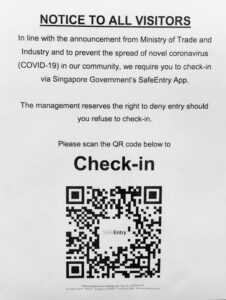by Andrea Traietti on September 3, 2020
Opinion
by Erin Garvey ’22
Opinion Staff

When a college student hears the words “study abroad,” they might picture a semester in Europe learning with friends while exploring a new culture. No one would imagine that “study abroad” would mean international students having to stay in their home countries to study remotely for the fall semester.
International students are already at the disadvantage of being from a different country, but now we must miss out on the campus experience? While remote learning was not everyone’s first choice, it is the safest choice. Does this make it any easier? Seeing social media posts of everyone moving in, visiting with old friends again, and even getting to see Dot and Fran’s smiling faces does not make living so far away any easier.
While COVID-19 ravages North America, the rest of the world is dealing with the same, if not worse, versions of the virus. Since March, I have been home with my family in Singapore where the virus has taken only 27 lives in the entire country. This was only because the Singaporean government established a two-month lockdown in early April, which they called a circuit breaker (CB).
This CB forced all residents to stay at home for an eight-week period. During this time, residents were not allowed to leave their designated districts within the country, and if they did leave, they were fined or deported from the country. Singapore took this lockdown very seriously because for such a small island, a virus like COVID-19 had the potential to spread quickly throughout the entire island, resulting in innumerable deaths and a devastated economy.
While the CB has been over for around three months now, the residents of Singapore are still under strict rules as to what, where, and when we can participate in anything outside of our houses. A strict mask rule has been enforced by local officials, hired by the government, to patrol all districts of Singapore and discipline any individual not abiding by the mask protocol.
While many of these rules seem as though they were modeled after the movie The Hunger Games, many Singaporeans are thankful for them. Here, there is very little worry about contracting the virus. While we have seen a slight increase in positive cases this past month, residents are generally not too concerned thanks to Singapore’s highly effective form of contact tracing. The government requires residents to scan QR codes at every entrance, seat, or even taxi cab, meaning people are immediately informed if they have been anywhere near an infected individual.
While it is not easy to see all of our friends moving back onto campus, and we feel left out and forgotten, many international students who are going remote for this semester are thankful for the experience that their own countries have provided them. While the rest of the world watched as the United States. battled through the COVID-19 pandemic, and we were also able to learn from them and implement their policies in our own countries.
There is no perfect way to deal with this virus, and while many students battled with the decision of whether to study remotely or be in-person, some made the hard choice of having to study abroad from their own bedrooms. Given our experiences living abroad during the age of COVID-19, international students will have a unique perspective that may be able to help others prepare for the next pandemic—but, hopefully, not during any of our lifetimes.